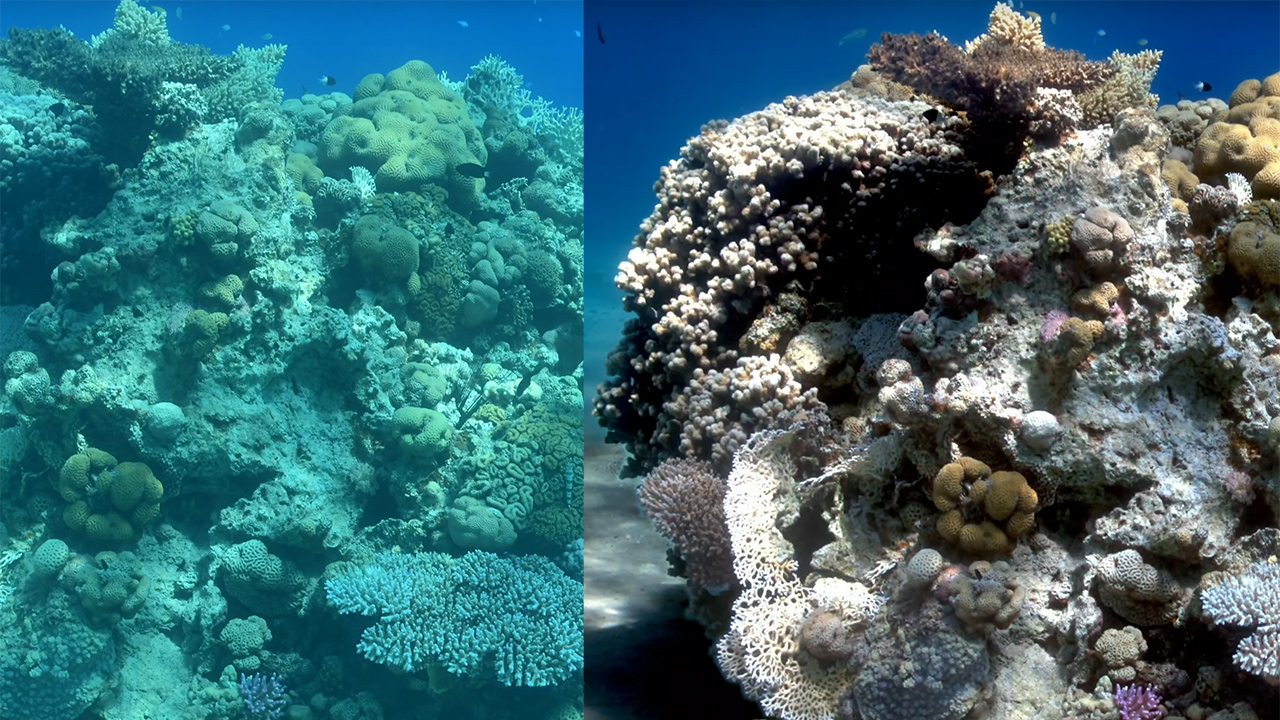A new and innovative algorithm called Sea-thru, developed by engineer and oceanographer Derya Akkaynak alongside Tali Treibitz, her postdoctoral adviser at the University of Haifa in Israel demonstrated a unique ability to fix color distortion caused by water from an image. This can not only affect future scientific research but might also have implications on underwater photography.
Light transmission in water is very different than in air partly because water is filled with a very large number of bigger particles that interact differently with light, this and other factors apparently cause significant color distortion that was very difficult to fix using conventional means.
Although underwater photographers have been using an image editing software for years trying to enhance and correct those distortions – they were done for the most part to create an aesthetically pleasing image rather than a true color-accurate one.
Before and after image processed using the Sea-thru’s algorithm
The new Sea-thru’s algorithm brings into the equation the physics of light absorption and scattering in the ocean and has been shown to restore true colors (as you can see in some of the examples on the video above).
Not everything is perfect though, at the moment the Sea-thru algorithm requires distance information (between the camera and object) and although scientists taking pictures underwater for scientific purposes might already have this information, non-scientific underwater photographers do not (on the other hand it is easy to come up with some attachments for underwater housings that will add some sort of a range finder acoustic/laser or otherwise and save it for reference to be used by the with the Sea-thru algorithm later on).
If you want to dive deeper into this topic we suggest that you read the full research paper on Sea-thru here (a Scientific American article on this topic can also be found – here).

You can support LensVid by shopping with our affiliate partners
Affiliates: Amazon, B&H, Adorama and E-bay.
Why should you trust us?